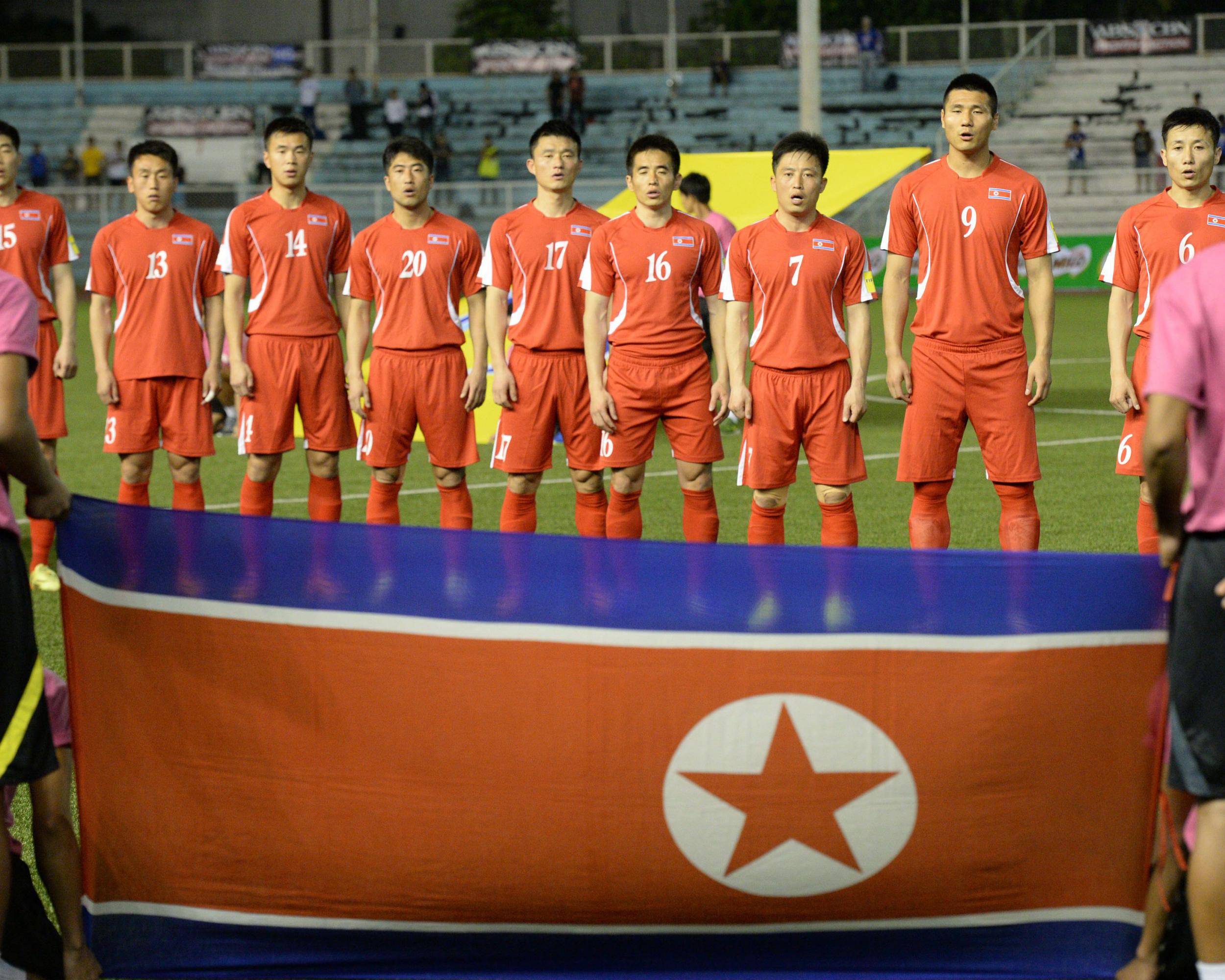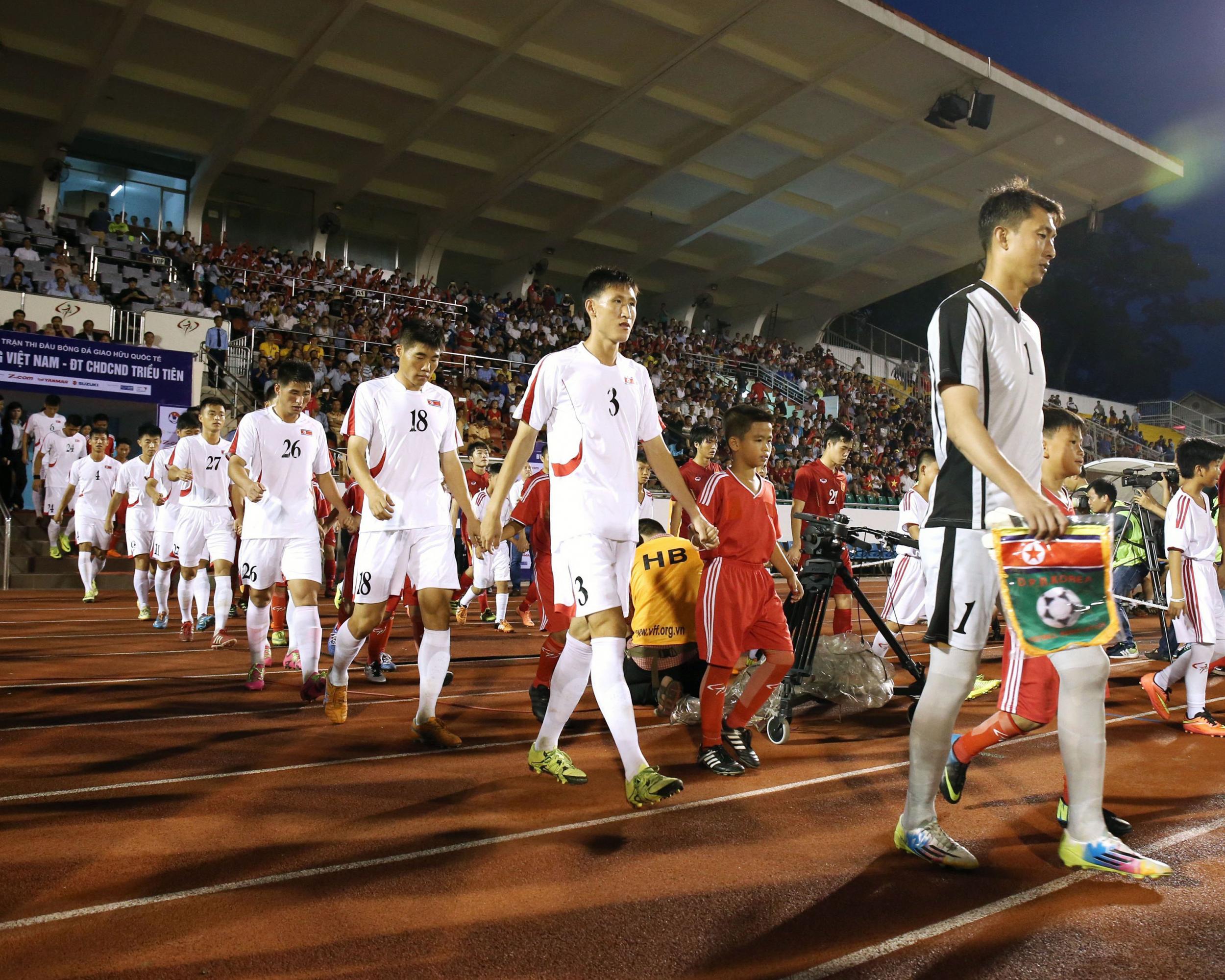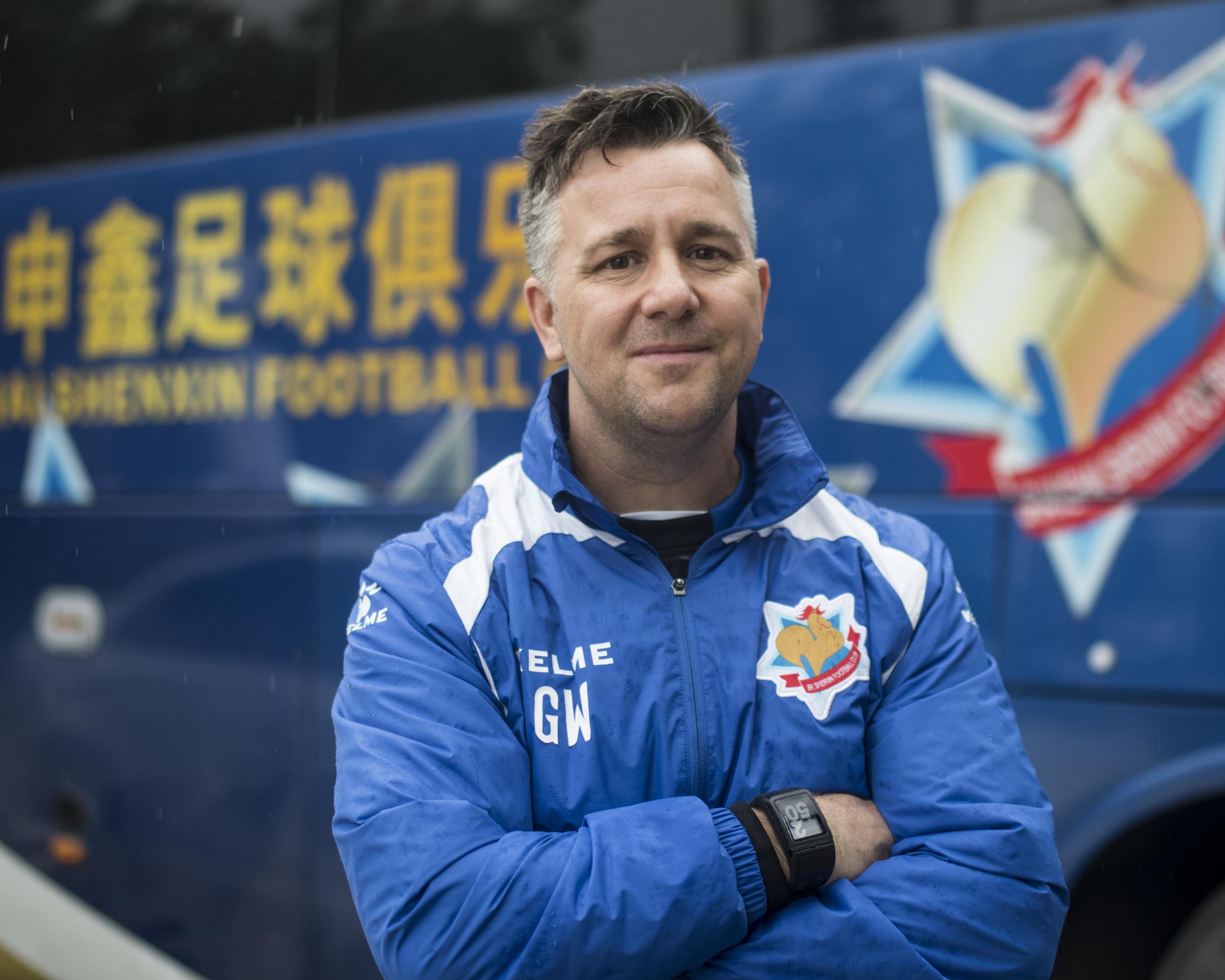Football in North Korea under Kim Jong-un - an inside look at the beautiful game being played in shadow of nuclear war
Richard Edwards speaks to the former manager of Guam who often played against the DPRK under the constant threat of missiles being fired at them

“Put it this way, if he starts threatening Taiwan then I’ll know that he’s following me,” says Gary White, the newly-appointed coach of the Taiwanese national team.
Unlikely as it sounds, the Southampton-born manager and North Korea’s supreme leader, Kim Jong-un have previous. When White was manager of Guam he worked among a populous who had long since grown tired of threats made by a man coined ‘The Rocket Man’ by Donald Trump in his unequivocal address to the United Nations in New York on Tuesday.
White, though, is just one of a number of British coaches working within striking distance of North Korea’s missiles and although Taiwan is not currently on Kim’s ever growing list of targets, there’s an understandable sense of nervousness in and around a Korean Peninsula that appears to be teetering on the brink.

“I think the people in Guam have grown used to it,” says White. “It’s not a new thing. I was in Guam for four years and it seemed that every three weeks they were making threats to aim missiles at us.
“We played Korea in the East Asian Cup after one of those threats and we utilised it for the game. We were winning 1-0 at one stage too. We really competed with them, even though we ended up losing.
“Any game with North Korea was always going to be tense because of everything that had been said.
“It seems to be a constant problem. Guam didn’t ask to be involved in this situation and it does seem to be more serious now than ever before.”

White left his job in the country – after leading them to their highest ever Fifa ranking – in May 2016, leaving the Matao to manage Shanghai Shenxin in the Chinese First Division.
Now, a week after arriving in Taiwan, he again finds himself sitting well within Kim’s range. In Guam, meanwhile, they listen to the DPRK’s threats with increasing unease, despite the bullishness of Trump.
“The people of Guam are very resourceful – they’ll look after each other regardless of the situation,” says White. “It’s a very family orientated country with a great community spirit. It was a wrench for me to leave, it’s a fantastic part of the world that should be visited more often. I hope the latest situation won’t put people off going there.”
Simon Cockerill and Nick Bonner, on the other hand, are two of a select band of Brits who have regularly visited the DPRK for over 20 years. Their company, Kyoro Tours, run regular tourist trips to the country and the pair have an in-depth understanding of the most isolated nation on earth.
Cockerill is a regular attender at North Korean league matches, while Bonner worked extensively on a documentary detailing the feats of North Korea at the 1966 World Cup.
Speaking to The Independent from Shanghai, Cockerill said that the overwhelming feeling, in China at least, is one of frustration.
“Everyone here is hoping that nothing gets worse,” he says. “Also, the closer you get to North Korea, from this side at least, is that people are pretty pragmatic, they don’t expect anything to come of it.
“The media loves a bit of drama, don’t they? The mood in Pyongyang is very much one of business as usual. After all, the people there are told constantly in their media that they’re being threatened by outside forces. It’s nothing new to actually be threatened. The reality of whether there’s a threat or not is irrelevant in many ways.

Despite the intransigence of North Korea’s increasingly bullish leaders, there are sign of change – on the football front, at least. This summer marked the return of North Korean clubs to the AFC Cup for the first time in 25 years, with April 25 – the club of the country’s army – reaching the latter stages before losing 3-0 on aggregate to Bengaluru.
Kim Yu-Song, a striker for April 25, is and the competition’s top scorer, bagging nine goals before his club’s exit to the Indian side.
Their appearance in the competition won’t have had football fans thronging to bars in Pyongyang, though. And won’t have upped the decibels during the North Korean league season.
“The fans aren’t particularly vocal,” says Cockerill. “These teams get the low hundreds to their league games despite it being cheap to get in. Most recently, though, there was a women’s tournament in April and for their game against South Korea I went to buy half a dozen tickets and was there for two and half hours, arguing, fighting and begging to get those tickets.
“For the big games, you’ll get cheering squads and sometimes there’s a band there which plays a song whenever they score. It’s like the England band but there’s only one song. A large proportion of the fans at games don’t know the player’s names either, they just know their numbers.”

According to Cockerill, it’s volleyball that remains the most visible sport in the country but with the US and North Korea taking this political football to the brink, there’s a growing unease on both sides of the demilitarised zone that separates north and south.
For British coaches working in the region, a growing band which includes the likes of former England midfielder, Carlton Palmer, who coaches the sons of Oscar, Ricardo Carvalho and Demba Ba at the Wellington College in Shanghai, it remains a nervous time. With Trump’s words in New York on Tuesday unlikely to have sweetened the mood of the North Korean leader.
But amid the ugly rhetoric, the Beautiful Game continues.
Join our commenting forum
Join thought-provoking conversations, follow other Independent readers and see their replies
Comments
Bookmark popover
Removed from bookmarks